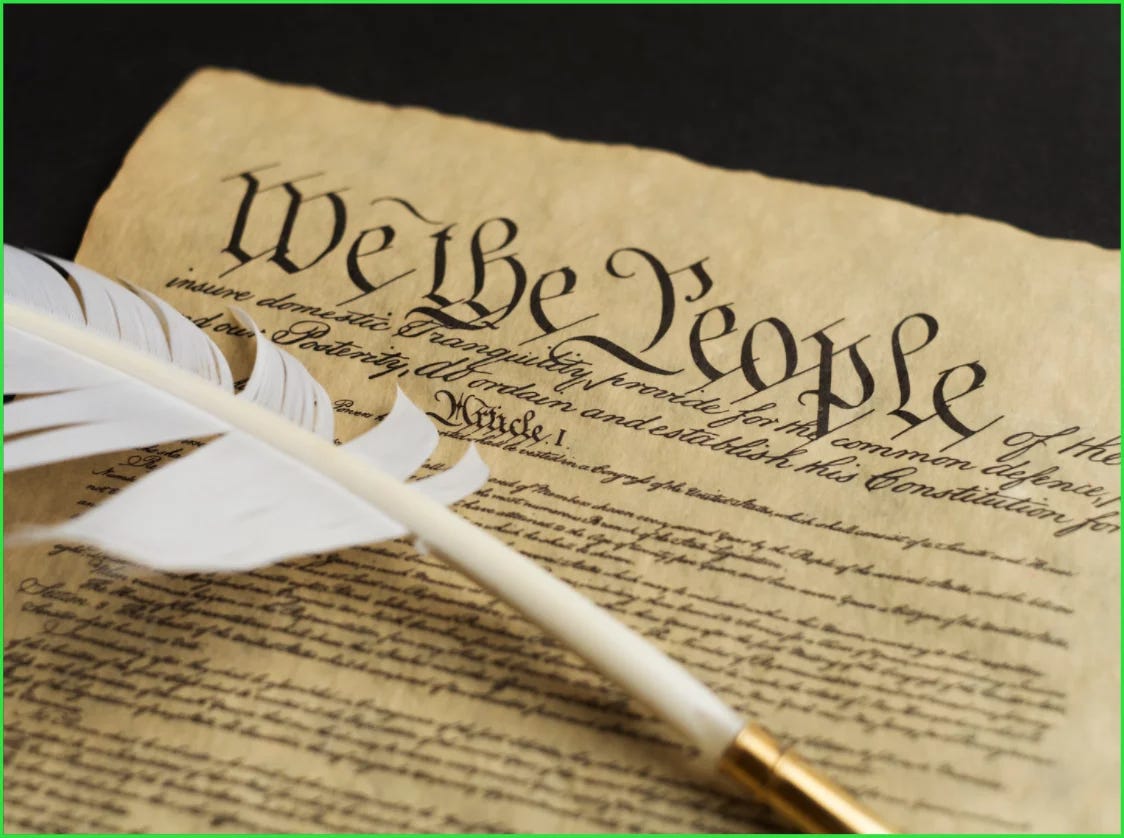Get in the DAO, nerd.
Vol #61 - November 19th, 2021
It’s a ridiculous premise straight out of a made for TV movie. “Get in the DAO nerd, we’re buying the Constitution.”
Twitter has been abuzz the past few days over a quickly cobbled together group that brought $40M to Sotheby’s to buy the only privately held copy of the Constitution. The enthusiasm was as heady as the critiques were dismissive.
While their bid was ultimately unsuccessful, by now even New York Times readers have learned what a DAO is, and that might just be the point. The kids didn’t win this time, but they’re certainly not going away.
If there was any victory they could claim, it was the fact that Sotheby’s displayed the price of bidding in terms of ETH. That’s a powerful symbol to a group that has been pounding the table for years declaring that “ETH is Money”. If Sotheby’s can price in a crypto currency, why can’t others?
Decentralized Autonomous Organization has the same ring as Limited Liability Company. It’s a shell or structure to govern people who want to get together and do things, and sets a framework for how to cooperate. But instead of filing form LLC.45.5, they build a smart contract that regulates voting and relies on a blockchain to enforce these rules.
DAOs have seen some success as groups owning artworks or cultural artifacts, so it’s not much of a leap to buy the Constitution. One of the most famous, PleasrDAO, describes itself as a “collective of DeFi leaders, early NFT collectors and digital artists who have built a formidable yet benevolent reputation for acquiring culturally significant pieces with a charitable twist”.
The structure has also been used (or proposed to be used) to govern certain protocols, and allows for anonymous founders to wield control through token voting rather than boardroom battles. It has yet to be proven, but there are many willing experimenters.
There are however cracks at the bleeding edges of brand new.
Gas fees are a major problem with this model right now. Over half of the contributors to the Constitution DAO gave $200 or less. While the DAO has promised to return commitments, the transaction costs means their refund will amount to almost nothing.
When markets have high friction in the form of transaction costs, it makes them both less efficient and less accessible. In the equity world, retail participation barely existed before Charles Schwab broke down the barrier of $75 per trade commissions. And that was $75 in 1974!
Gas overall is a major question with blockchain efficiency. While the base layer of Ethereum is intended to be both secure and flexible, the cost of that compute is expensive. If single send transactions are cost prohibitive, that limits the potential for true mass adoption.
An important flexibility of the current legal process is also missing with DAOs - the flexibility to adjust rules. While LLC 5.25 is a simple two page document (really one plus signatures), to change the code governing the DAO is much harder than it would be in a centralized organization.
The immutability of the blockchain combined with the tendency for programs to develop bugs overtime or organizations to discover edge cases is a friction that needs to be solved for. If DAO’s can't find an efficient and orderly mechanism to evolve, they will quickly move from innovators to dinosaurs.
Very practical questions are also not completely solved - where does the DAO keep the constitution? Is it passed around amongst members, or do they levy a fee to pay rent on a storage facility?
The armchair critiques are easy here, and perhaps winning would have been more of a curse than a blessing. But it’s hard to ignore the speed and tenacity with which this group coalesced.
For many years the blockchain ecosystem has existed almost independently of the traditional monetary and legal structures. Bridges between them were well guarded by financial regulators. As we have seen these past few months, the barrier between digital and physical is quickly breaking down, and momentum and zeitgeist are very hard things to stop.



